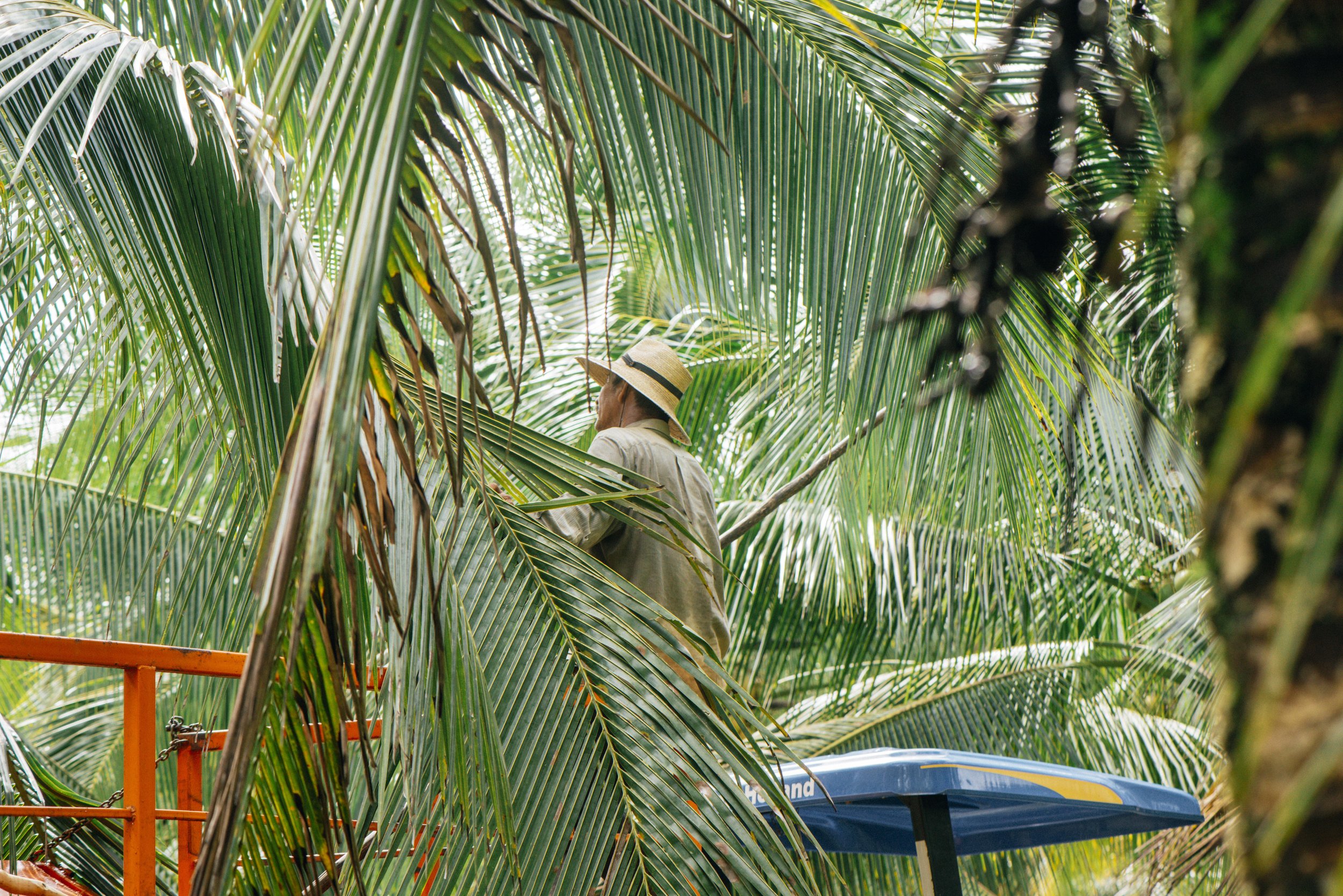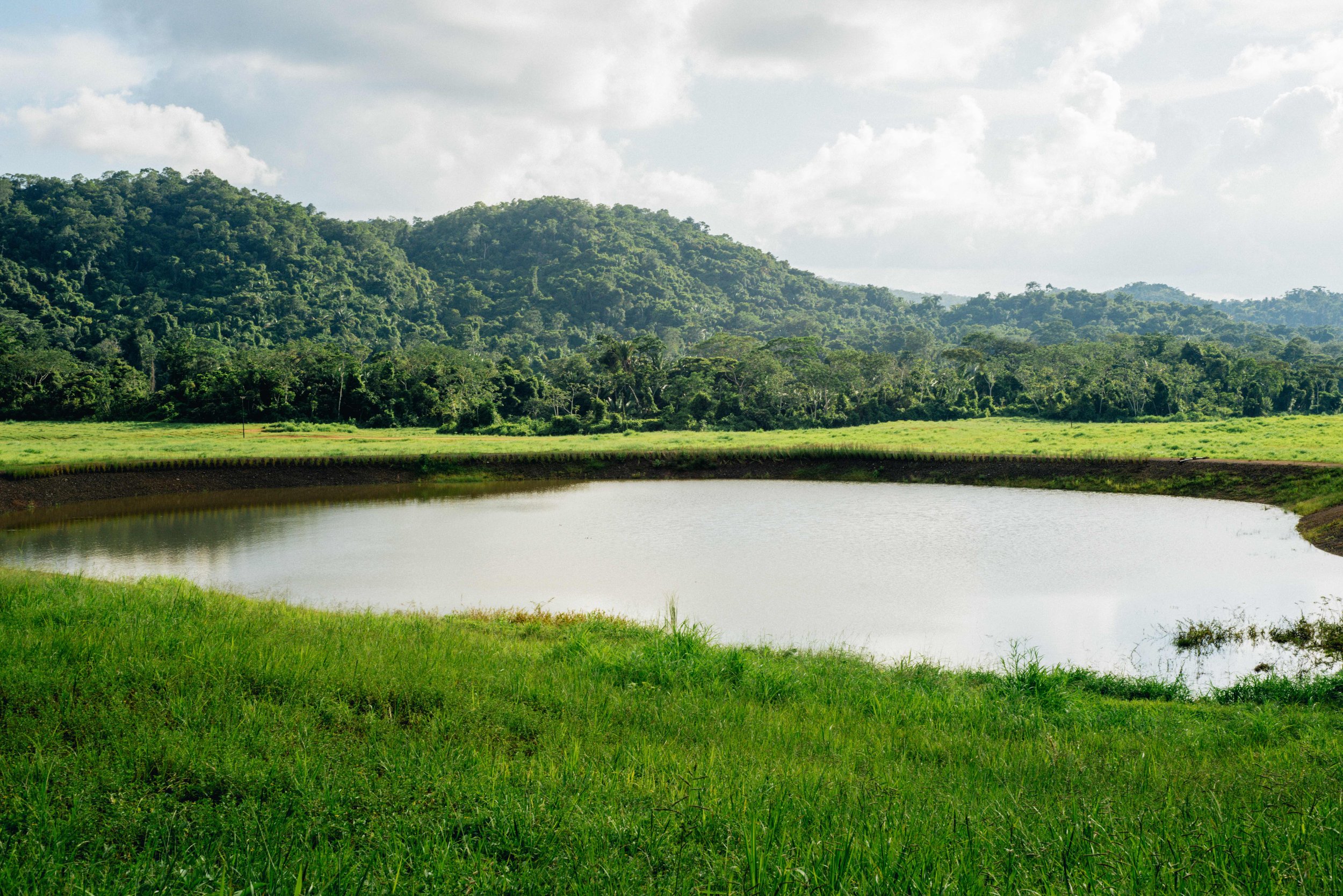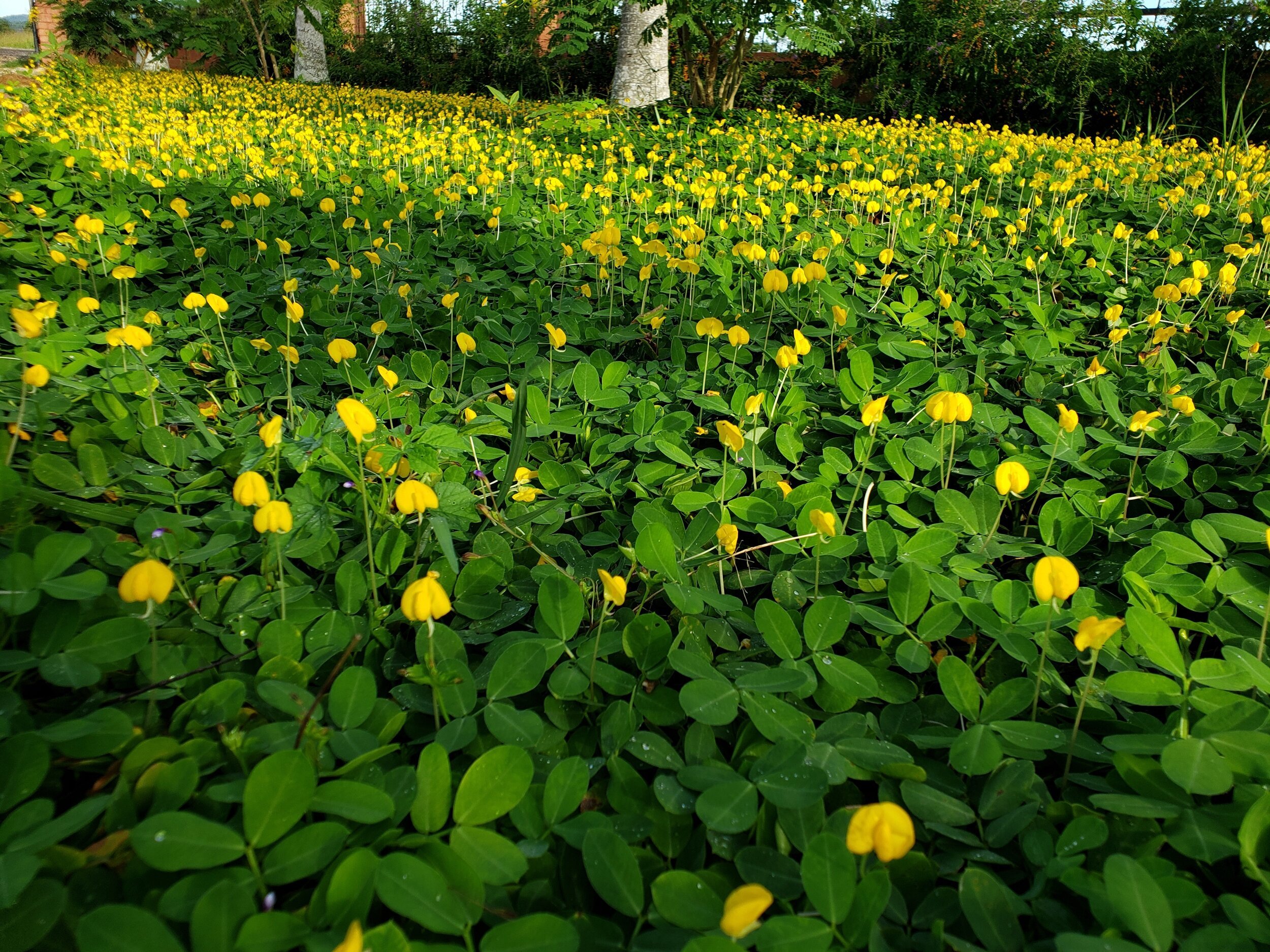
Our Agricultural Practices
At Silk Grass Farms, we define our method as the act of healing damaged land through holistic agricultural practices. By applying these natural systems to agricultural production, we reimagine conventional, segmented systems as one holistic network. How we manage soil, water, crops, grasses, forests, and production waste all directly impact our environment. While there’s no one-size-fits-all method to designing farm systems around nature, we’re observing and applying what works best in our farms’ microclimates.
Regenerative Agriculture Practices
-

Responsible Water Management
Strategically placed drains and reservoirs work with the land’s natural contours to slow stormwater runoff, spread it over a larger area, and naturally sink it down through our soil to the water table below, reducing erosion and downstream flooding. Riparian buffers along all of our waterways are planted in native trees and shrubs to hold the soil and provide food, habitat, and shade for wildlife.
-

Cover Crops
Because soil is teeming with life, overexposure to sun, wind, and rainfall can degrade soil biodiversity. Knowing this, we do our best to leave no field bare. By planting fallow fields with cover crops, native grasses and incorporating organic matter into the soil, we retain moisture, fix nitrogen, prevent erosion, and shield from the harsh effects of sun and wind exposure.
-

Diverse Crops
At Silk Grass Farms, we cultivate a wide variety of crops that best fit the local soil types. Our diverse selection of crops includes coconuts, mangoes, avocados, melons, gingers, vanilla, citrus, cacao and other species. Where possible, we intercrop using agroforestry techniques.
-

Grass Cycles
Nothing grows faster than grass in a tropical climate. Our grasses grow sci-fi fast, but we’re not complaining. The faster grass grows, the quicker it sequesters carbon in its tissues and, ultimately, the soil. Longer grass maintenance cycles allow maximum carbon sequestration.
-

No-till/Low-till
While soil has the potential to safely store vast quantities of carbon, it also can do the reverse. Tilling disturbs soil biodiversity and releases carbon in the form of harmful greenhouse gasses. The majority of our crops are perennial, naturally grown without tilling. Where we do grow annual crops such as gingers and melons, we use low-till or no-till methods.
-

Waste Management
Our primary production wastes include coconut shells, husks, citrus peel, rag, and seeds. These “waste” materials are of great value to us as we plan to process them into biochar, biofuel, activated charcoal, wood vinegar, mulch, and animal feed.
-

Apiculture
With global bee populations on the decline, apiculture is important to our regenerative model. Between 2020-2021, we purchased 50 honeybee hives and 15 melipona beecheii hives as starter hives to practice apiculture. We plan to multiply these bee colonies into more than 300 hives placed in strategic points around the farm.
-

Native Hardwoods
As part of our agroforestry and reforestation initiative, we aim to plant a half-million native hardwood trees on and around our farms in the next five years. Over time, these trees will protect the land as windbreaks preventing storm damage and erosion, or serve as shade trees in our agroforestry plots, all while sequestering tons of carbon.
-

Integrated Pest Management
Our Integrated Pest Management (IPM) plan uses preventative controls and strategic spot treatments, protecting our bee population and ecosystem from the harmful effects of pesticides. We have a zero-herbicide policy and only allow for the manual and mechanical brush clearing.
Regenerative Agriculture Innovations
We envision Silk Grass Farms as a living agricultural research lab, where we use both proven regenerative techniques and test new and innovative ways to produce the best, healthiest, most abundant crops — in partnership with nature.
A selection of our ongoing efforts toward sustainable agriculture optimization and innovation include:
Conducting farm-wide soil testing;
Committing to soil biodiversity practices and studies for the long-term elimination of agrochemicals and Regenerative Organic Certification by 2030;
Building a state-of-the-art, clean-tech biorefinery to upcycle post-harvest and post-processing biomass into carbon-stable, value-added products and soil amendments;
Exploring methods of incorporating biochar into scalable geological carbon sequestration and soil rehabilitation;
Establishing and maintaining a 24-acre test plot of experimental cover crops for seed multiplication, pollination, shade, erosion control and improved soil fertility;
Establishing and maintaining a vermiculture site to produce and multiply composting worms; produced 1,200 pounds of humus;
Producing Mountain Microorganisms (MM) used in the production of annual crops to increase soil microbial activity and reduce pest and disease problems;
Producing fermented grass to be used as a nitrogen source in crop production;
Adding chicken coops as part of our Integrated Pest Management program.

